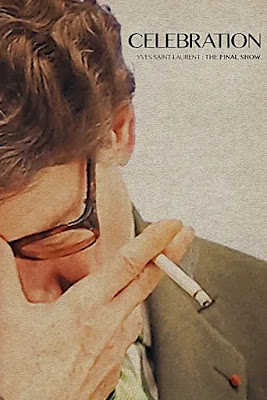If ever a tome was needed to help correct the world's ever-growing inequality between the wealthy and the rest, it was Thomas Piketty's CAPITAL IN THE TWENTY-FIRST CENTURY, published in French in 2013 and the following year in an English-language translation.
Though an immediate best-seller internationally, TrustMovies suspects it was one of those books more talked about than actually read by the intelligent masses (yup, I didn't read it either). For those of us who didn't -- and even maybe for those who did -- here comes the movie version (a documentary, 'natch) directed by Justin Pemberton that, after a bit of a shaky start, goes on to become one of those must-see movies that may change the attitude of many lucky enough to view it.
Mr. Pemberton (shown at left), along with M. Piketty (shown below), make
their point via history, economics, statistics and even psychology. Regarding that last, the experiment shown here involving wealth, entitlement and the results of a Monopoly game played without anything resembling a level playing field should open your eyes and leave your mouth agape. That aforementioned point is how hugely the gap in western countries between the very wealthy and the remaining populace continues to widen -- along with how unhealthy this situation clearly is.
Piketty, who, along with Pemberton and Matthew Metcalfe, adapted his own book to the screen, has certainly managed to make his information come across as intelligent, important and more than a little timely.
It is Piketty himself who acts as initial narrator, speaking to us in French (with English subtitles) and popping up from time to time, along with a number of other smart, well-spoken talking heads (including economic analyst Rana Foroohar, above) who, together, make a very good case for why this enormous income disparity is so destructive for so many.
Initially, the documentary took some time to involve me and to lift off. I suspect this is because the film spends a good half hour offering a look at history and telling us things that, if we've also seen other fine docs such as Capitalism and No Gods, No Masters, we'll already know. Add to this, Mr. Pemberton's penchant for filling up the screen with so much of everything as to be distracting (see above and below).
Yet, as Capital in the Twenty-First Century moves along, it gathers such a head of steam that is soon becomes so vitally interesting and packed with more and more with succulent examples and pertinent information that, once finished, you may want to watch it all over again, just to make sure you got the whole thing.
By the time it gets to -- and sticks with -- this twenty-first century, you'll be absolutely hooked, as Piketty and company explore everything from globalization and its discontents to the country of China (above) -- and why the Chinese (below) are faring better than are we in the west.
This is not simply a slap on the wrist or some dire warning without an accompanying solution. Piketty offers some good ones -- involving taxation and the monitoring of offshore tax havens, among others. Yes, this'll take work. But what that is worthwhile does not?
More to the point, this change demands both the will and the work. But with so many of our current politicians (just as those of the past, above) --- of either stripe -- in hock to the wealthy and the corporate, will and work are, as ever, in short supply. And now we have the current Corona virus to makes it all more difficult. Still, this is a documentary that demands to be seen, discussed and acted upon. We shall see.
From Kino Lorber and running 103 minutes, Capital in the Twenty-First Century was supposed to open theatrically this Friday, April 3 (click here, then click on PLAYDATES, to see the should-have-been theatrical venues). If not available theatrically, surely the film will soon be seen via digital streaming. I'll try to keep you posted with any updates here....























































